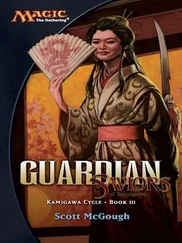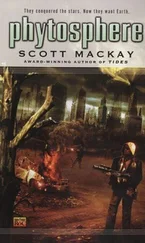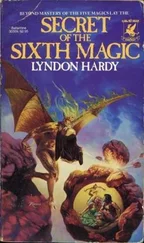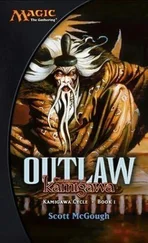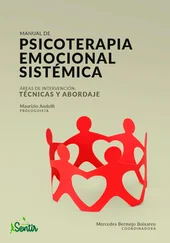Sujata Massey - Shimura Trouble
Здесь есть возможность читать онлайн «Sujata Massey - Shimura Trouble» весь текст электронной книги совершенно бесплатно (целиком полную версию без сокращений). В некоторых случаях можно слушать аудио, скачать через торрент в формате fb2 и присутствует краткое содержание. Жанр: Детектив, на английском языке. Описание произведения, (предисловие) а так же отзывы посетителей доступны на портале библиотеки ЛибКат.
- Название:Shimura Trouble
- Автор:
- Жанр:
- Год:неизвестен
- ISBN:нет данных
- Рейтинг книги:3 / 5. Голосов: 1
-
Избранное:Добавить в избранное
- Отзывы:
-
Ваша оценка:
- 60
- 1
- 2
- 3
- 4
- 5
Shimura Trouble: краткое содержание, описание и аннотация
Предлагаем к чтению аннотацию, описание, краткое содержание или предисловие (зависит от того, что написал сам автор книги «Shimura Trouble»). Если вы не нашли необходимую информацию о книге — напишите в комментариях, мы постараемся отыскать её.
Shimura Trouble — читать онлайн бесплатно полную книгу (весь текст) целиком
Ниже представлен текст книги, разбитый по страницам. Система сохранения места последней прочитанной страницы, позволяет с удобством читать онлайн бесплатно книгу «Shimura Trouble», без необходимости каждый раз заново искать на чём Вы остановились. Поставьте закладку, и сможете в любой момент перейти на страницу, на которой закончили чтение.
Интервал:
Закладка:
“I haven’t heard of any Kalama Street in Leeward Oahu. Even if it exists, finding records isn’t that straightforward.” He studied me with something of a challenge behind his wire-rimmed glasses. “You see, our records are organized by the date of transaction, not address. Do you have that information?”
“I don’t know the exact date, but the house I’m interested in may have been sold or rented in the 1930s,” I said.
“You have nothing more than that?” He sounded incredulous. “I suggest you go ahead and search the ledgers each year, then, looking for that address and the buyer’s name…which is?”
“Shimura.” I decided not to bring up the Pierce name, lest he ask me more about my interest in them.
“Ah, that’s your family name?” He looked at me searchingly, and I nodded. “It’s not a common name on the island. That will make it easier for you.”
A real-estate agent needed assistance, so I moved off and picked out two heavy books, one which included the end of 1929 and part of 1930. It was not going to be remotely easy, especially since I doubted Harue Shimura’s name was going to be found anywhere. The things I do to please my father, I thought as unloaded a heavy book bound in worn green cotton. I scrutinized the old typewritten ledger, trying to see any mention of names like Shimura, Liang and Pierce.
Pierce came up numerous times, and I made a careful record of each transaction’s date, buyer, price, and address. I had reached the early 1940s, and my eyes were very tired, when my cell phone vibrated. As expected, it was my father. He’d passed his appointment with flying colors, and wanted to hear what I’d learned.
“Nothing so far,” I said. “It’s a lot of work, going through these books. Shall I put the search aside and just return to the hospital to take you home?”
“Actually, I hope to join you.”
I acquiesced, and a few minutes later my father walked in the door. Surprisingly, with my father around, the clerk became more interested and even went so far as to carry a few books to the table for him. Respect for the aged seemed to be as alive and well in Hawaii as it was in Japan, I thought, nodding my thanks at the clerk. Although my father was a pretty youthful sixty-three; he had sharp eyes, and seemed to be making faster work of the books than I had.
“Look at this,” my father said to me after forty-five minutes or so.
I was seated on the opposite side of the table, so I came around to look at the page he was studying. He pointed his finger to a line recording a sale of a building on Smith Street owned by Josiah Pierce to Clara Liang in 1945. It was not a fee-simple sale, but a sale with terms of seventy-five years, the kind of deal that Kainoa’s family and neighbors had received.
“So now we know that the Liangs have a continuing business relationship with the Pierces,” my father said.
“I’ve been looking at other Pierce transactions. They sold land to many people.” I pointed my father to the handwritten accounting I’d done of twenty-five transactions, dating from the thirties to the early sixties. I’d come across plenty of names, mostly Anglo-Saxon but also a sprinkling of Chinese, Japanese and Filipino. The amounts paid for properties ranged from figures as low as four thousand dollars to as high as twenty-five thousand, in the early sixties.
“Ah so desu ka,” my father said after a minute. “There are many names, with many different national origins. It’s like a microcosm of the old plantation populations.”
I’d been studying the names my father had pulled out, and the ones I’d come across. Then I saw something that made my skin prickle.
“Otoosan, all the Asian buyers have something in common. Do you see?”
My father looked at the names, and then at me. “I’m afraid I don’t. What is it?”
“Look at the names again-the first names. It looks as if all the Asians to whom Josiah Pierce was selling, during this pre-war period, were women.”
11

WAS THERE SOME significance in the fact that Josiah Pierce had sold property to women? On the long, traffic-clogged ride home, my father pointed out that perhaps the women were widowed or elderly, and had been sold the houses because they could no longer work the fields and live in free plantation housing. I countered that while this was a definite possibility, we had no information about the ages of the women he’d sold to. I didn’t add the secret thought I had-that perhaps these women had been his mistresses. It was a horrible way to think about women, but the situation of a landowner taking advantage of a worker’s wife or daughter was a sad reality, wherever in the world one looked.
Now I was wondering about Harue. My father and Uncle Hiroshi didn’t know why she’d been sent away, but Uncle Yosh had hinted that he knew a lot about it. I knew from personal experience that only children were sometimes treated like confidantes by their parents.
“We didn’t hear much about Harue’s husband Ken from Yosh,” I said. “It’s so unusual that he took her name. We now understand that she was cast out of her own birth family-so why would they allow a laborer to be added to the family registry?”
My father didn’t answer my question, but said, “Take a look to the right.”
I followed his line of vision to a tall plume of smoke ahead. A helicopter carrying a water bucket was heading from the ocean toward it. One of the Leeward Side fires. I wondered if this one was accidental or arson. The traffic was slow, and became a crawl as we approached the old sugar mill town of Waipahu, where orange flames blazed across the hills. Not in my backyard, I thought to myself with relief, and the traffic picked up after we passed the scene.
The security guards at Kainani seemed to know us now, because they waved the car through with a smile and a shaka sign, but there was a short line at the gates to our housing area. As we idled, I noticed that most cars were driven by military, which I deduced from both the drivers’ micro-short haircuts and the Department of Defense stickers on windshields. My attention was distracted briefly by the sight of a chubby young Japanese man walking slowly along the golf course. It was Jiro Kikuchi, and he had something with him-a golf club, which he was dragging along the grass.
“Where’s Calvin?” I asked aloud.
“Calvin’s coming tomorrow,” my father said, missing the point.
“No, I mean that Jiro just walked past and Calvin’s supposed to be monitoring him because of his disorder. Did you see him?”
“No, I didn’t, but what’s this about a disorder? Did Calvin Morita reveal medical information about his patient?” My father sounded aghast.
It was my turn at the gate, so I swiped the fob and was admitted to MacCottage Land, as I’d begun to think of our pretty replica plantation village. After doing so, I replied, ‘Calvin said something about schizoaffective disorder when he was attempting to explain what Jiro did in the pool. What do you know about this condition? Is it like Tourette’s Syndrome, where you can’t control what you say?”
“It’s not remotely like Tourette’s Syndrome, but I don’t care to discuss anything that might seem like a comment on a patient’s condition. And Calvin shouldn’t have done that either.” My father frowned.
“So I don’t have to be fixed up with him, then?” I asked while pulling into our driveway.
Uncle Hiroshi and Tsutomu were relaxing at the teak table on the lanai with frosty bottles of Asahi Super-Dry beer before them. The two of them had the unmistakable redness of a long day in the sun. The Hawaiian sun was too much for all of us-even though I’d slathered myself with sunscreen before running, I knew I had acquired a reddish tinge.
Читать дальшеИнтервал:
Закладка:
Похожие книги на «Shimura Trouble»
Представляем Вашему вниманию похожие книги на «Shimura Trouble» списком для выбора. Мы отобрали схожую по названию и смыслу литературу в надежде предоставить читателям больше вариантов отыскать новые, интересные, ещё непрочитанные произведения.
Обсуждение, отзывы о книге «Shimura Trouble» и просто собственные мнения читателей. Оставьте ваши комментарии, напишите, что Вы думаете о произведении, его смысле или главных героях. Укажите что конкретно понравилось, а что нет, и почему Вы так считаете.

